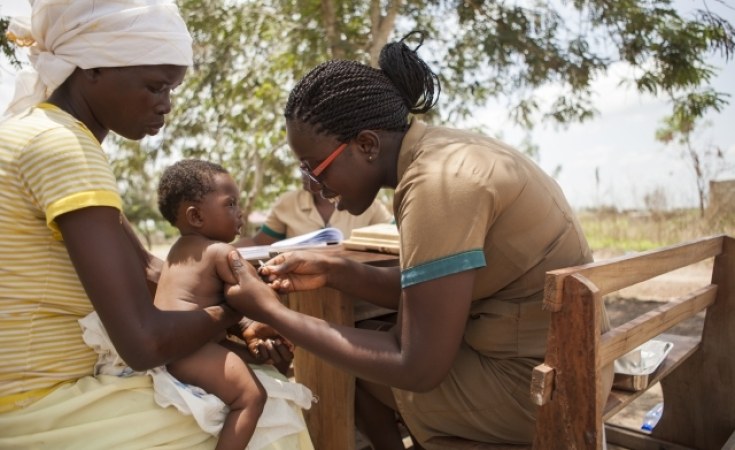Cape Town — The American entrepreneur and philanthropist, Bill Gates, has mounted a vigorous attack on prophets of doom who say that poor countries are destined to remain so and that foreign aid doesn't work.
In the sixth of the annual letters issued by their foundation, Bill and Melinda Gates urge their readers to combat what they call three "myths": those around efforts to end poverty, the effectiveness of foreign aid and - Melissa Gates's particular target - the argument that reducing child deaths will lead to the world becoming over-populated.
In the 2014 letter, published by the Bill & Melinda Gates Foundation today, Bill Gates says the belief that the world cannot end poverty and disease is not just mistaken: "It is harmful. It can stall progress. It makes efforts to solve these problems seem pointless. It blinds us to the opportunity we have to create a world where almost everyone has a chance to prosper."
Tackling the suggestion that poor countries always stay poor, he says the proportion of very poor people in the world has dropped by more than half since 1990. He advocates that the division of the world into two categories - "developing" and "developed" - needs to be replaced by at least three: low-income, middle-income and high-income.
"Don't let anyone tell you that Africa is worse off today than it was 50 years ago," Gates writes. "Income per person has in fact risen in sub-Saharan Africa over that time, and quite a bit in a few countries.
"After plummeting during the debt crisis of the 1980s, it has climbed by two thirds since 1998, to nearly $2,200 from just over $1,300. Today more and more countries are turning toward strong sustained development, and more will follow. Seven of the 10 fastest-growing economies of the past half-decade are in Africa."
He also makes a case for "big strides" in health and education in sub-Saharan Africa:
- The life-span for women has risen from 41 to 57 years since 1960, and would have gone up to 61 years were it not for the HIV epidemic;
- The percentage of children in school has gone from the low 40s in 1970 to more than 75 percent.
Gates acknowledges that average figures conceal big differences between countries, pointing to Ethiopia's annual income of $800 a year per person against Botswana's nearly $12,000. And within countries, "life in a major urban area like Nairobi looks nothing like life in a rural Kenyan village."
Nevertheless, he predicts that by 2035 almost all countries will be what are now categorized as "lower-middle income" or richer: "Almost no country will be as poor as any of the 35 countries that the World Bank classifies as low-income today, even after adjusting for inflation."
Writing on foreign aid, Bill Gates agrees that it can be made more effective and that some is wasted or stolen: "But broadly speaking, aid is a fantastic investment and we should be doing more.
"It saves and improves lives very effectively, laying the groundwork for... long-term economic progress... which in turn helps countries stop depending on aid."
He also marshals arguments against the criticism that aid hinders normal economic development:
"First, it [the criticism] lumps different kinds of aid together. It doesn't differentiate aid that is sent directly to governments from funding that is used for research into new tools like vaccines and seeds... The money we spend today on a Green Revolution for Africa is helping countries grow more food, making them less dependent as well...
"Second, the 'aid breeds dependency' argument misses all the countries that have graduated from being aid recipients, and focuses only on the most difficult remaining cases."
Backing this argument, he cites Botswana, Morocco and Mauritius as African countries which have cut their dependency on aid, and adds that in sub-Saharan Africa the share of the economy that comes from aid is a third lower now than it was two decades ago, even though the total amount of aid has doubled.
In her section of the annual letter, Melinda Gates notes that people have worried for two centuries that food supply will not keep up with the world's population growth. Yet in the vast majority of countries, falling death rates are followed by falling birth rates:
"When children survive in greater numbers, parents decide to have smaller families... The planet does not thrive when the sickest are allowed to die off, but rather when they are able to improve their lives. Human beings are not machines. We don't reproduce mindlessly. We make decisions based on the circumstances we face."


